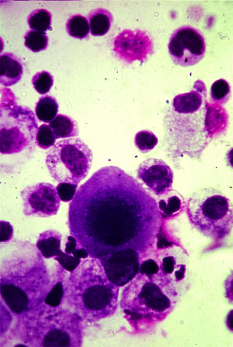New tests spot eight cancers
 Australian researchers are lending a hand in the development of an exciting new cancer test.
Australian researchers are lending a hand in the development of an exciting new cancer test.
CancerSEEK is a new blood test or 'liquid biopsy' for the early detection of eight common cancers, diagnosing tumours before they have spread, when the chance of cure is high.
The test is being developed by researchers at Johns Hopkins University in the US, with the assistance of Walter and Eliza Hall Institute scientists Associate Professor Jeanne Tie and Professor Peter Gibbs.
The blood test screens for key proteins and gene mutations that indicate the presence of one of eight types of cancer: ovary, liver, stomach, pancreas, oesophagus, bowel, lung and breast.
Blood tests that can accurately detect the early stages of cancer, well before symptoms are present, are urgently needed as cancer mortality rates are directly related to how advanced a cancer is at diagnosis.
While screening tests for some cancers have already been developed, and are associated with earlier diagnosis and better outcomes, for many major tumour types there are no effective screening tests.
The currently available screening tests can also be unpleasant, carry risks and tend to suffer from low uptake, and they can each test for only one cancer at a time.
But in experiments so far, CancerSEEK has returned accurate results in a median of 70 per cent of the eight cancer types.
It works by looking for the mutated DNA that dying cells shed into the blood, which have particular protein biomarkers for bowel, breast, liver, lung, oesophageal, ovarian, pancreatic and stomach cancer.
The test was able to positively detect between 69 and 98 per cent of people who had one of five cancer types (ovary, liver, stomach, pancreas, and oesophagus) for which there are no screening tests currently available (for average-risk individuals).
The specificity of CancerSEEK was greater than 99 per cent, meaning that fewer than one per cent of people had a false positive result from the test.
“CancerSEEK has the potential to be a one-stop, safe screening test for multiple tumour types that should have high community acceptance,” Australian researcher Dr Jeanne Tie said.
“For the first time we have the promise of a screening test that will lead to earlier diagnosis and improved survival outcomes for many tumour types that are major contributors to cancer deaths in our community.”
In the latest phase of its development, CancerSEEK will be tested on a set of 10,000 people.








 Print
Print